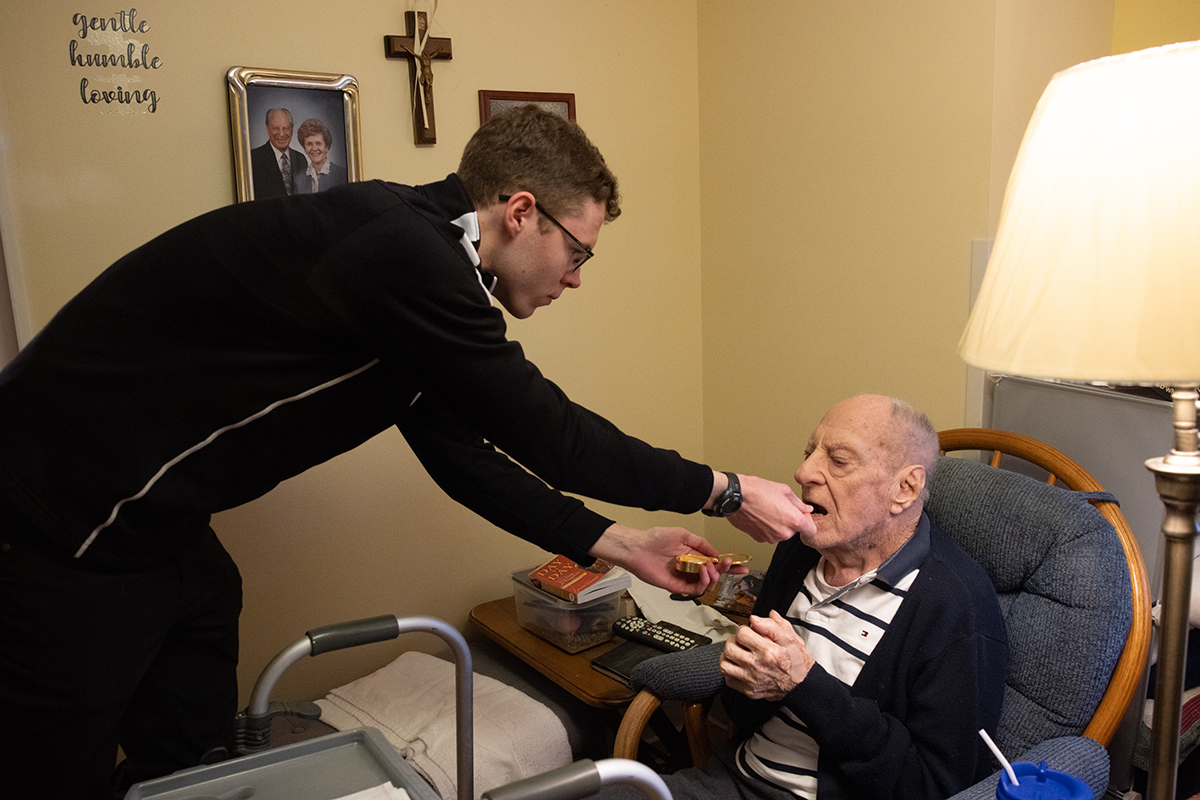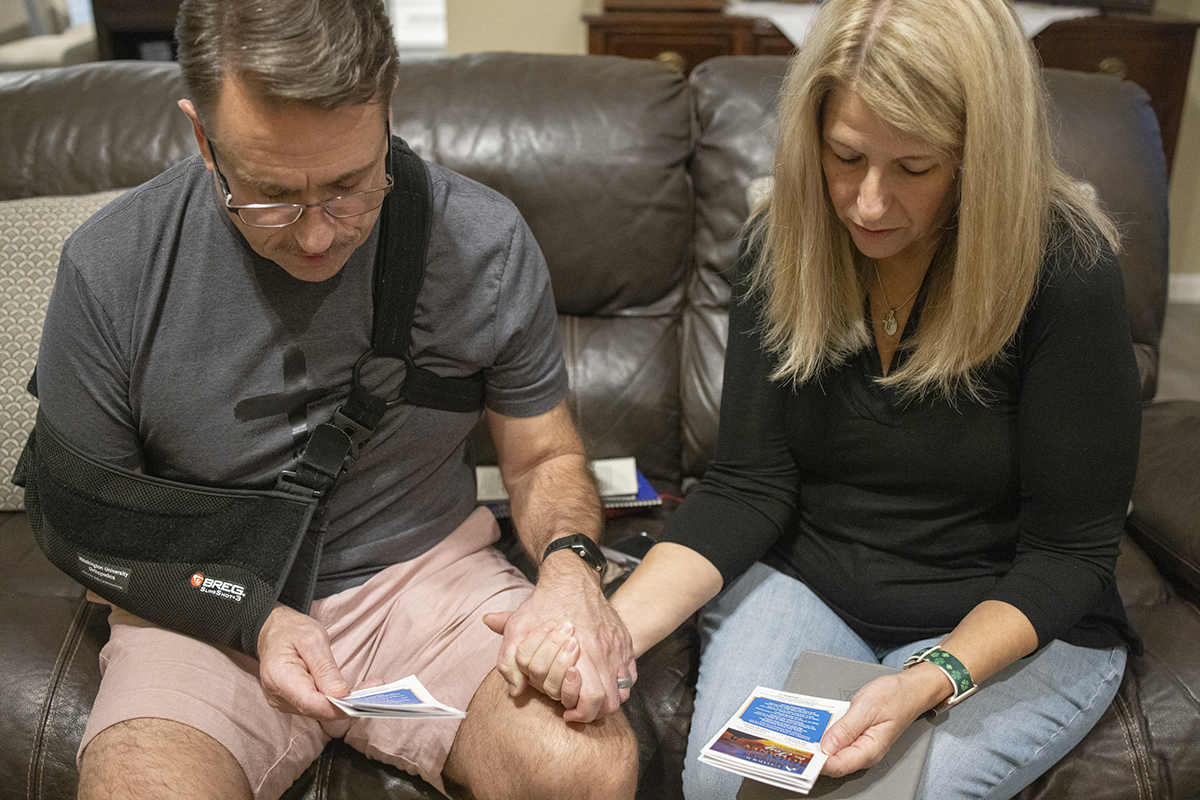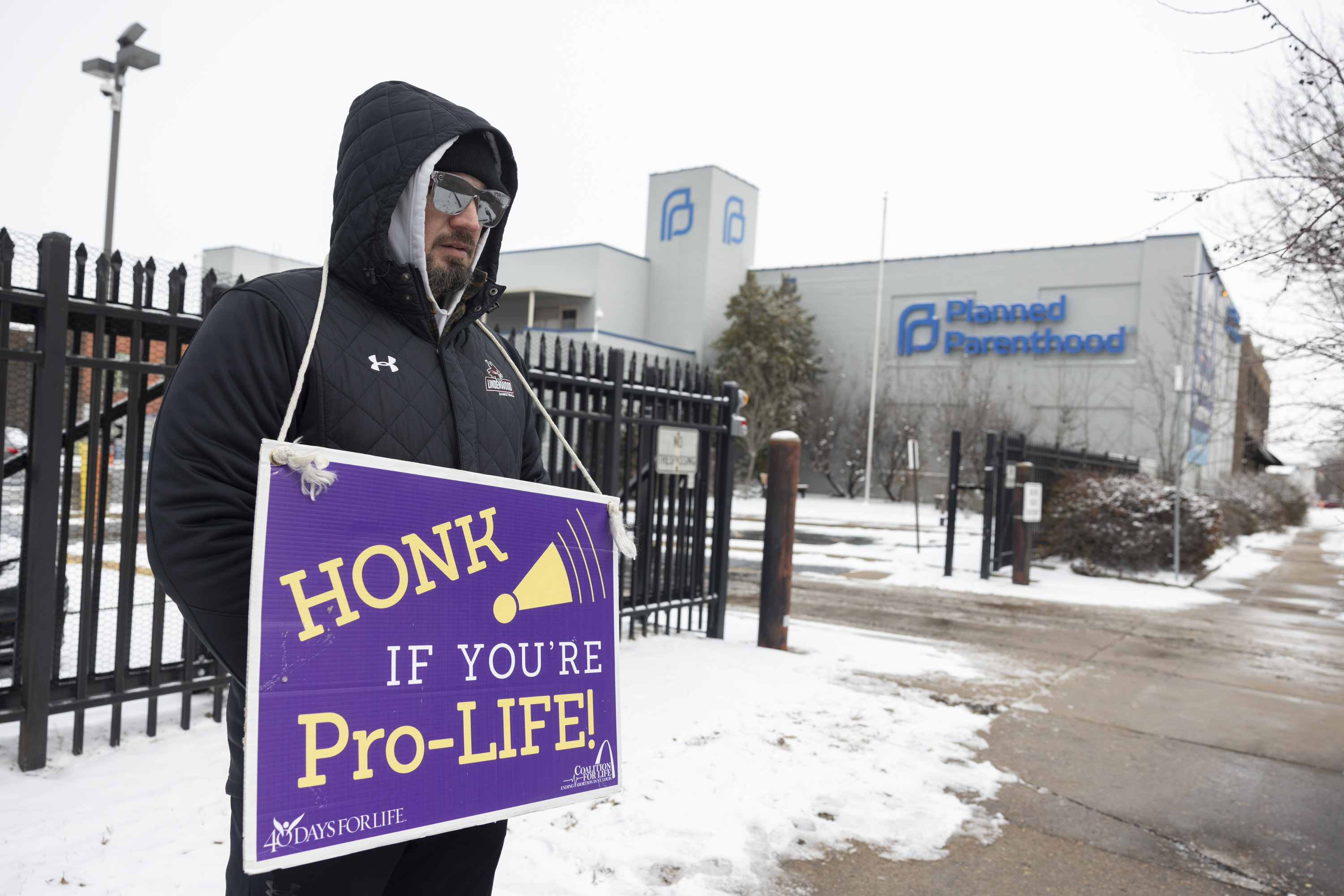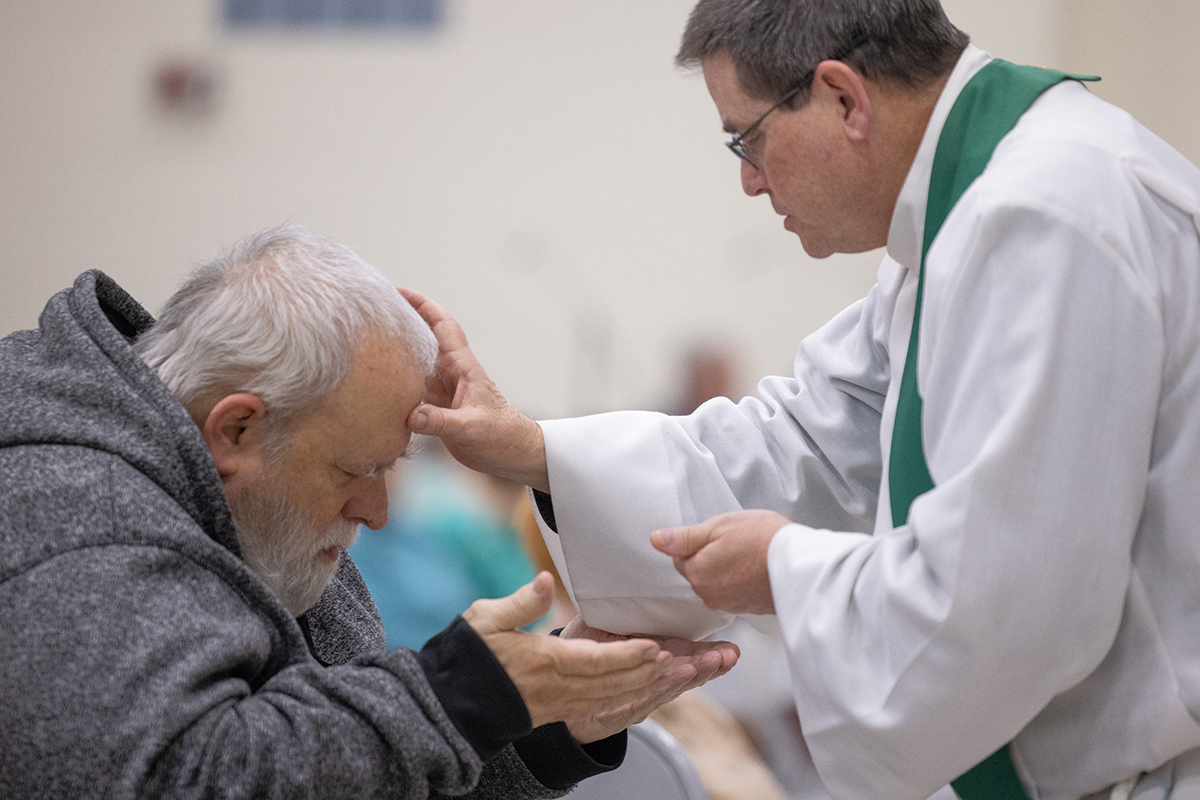Missouri Supreme Court rules that proposed amendment on abortion will appear on ballot
Measure would allow abortions until viability, with an exception for the “life and physical or mental health” of the mother
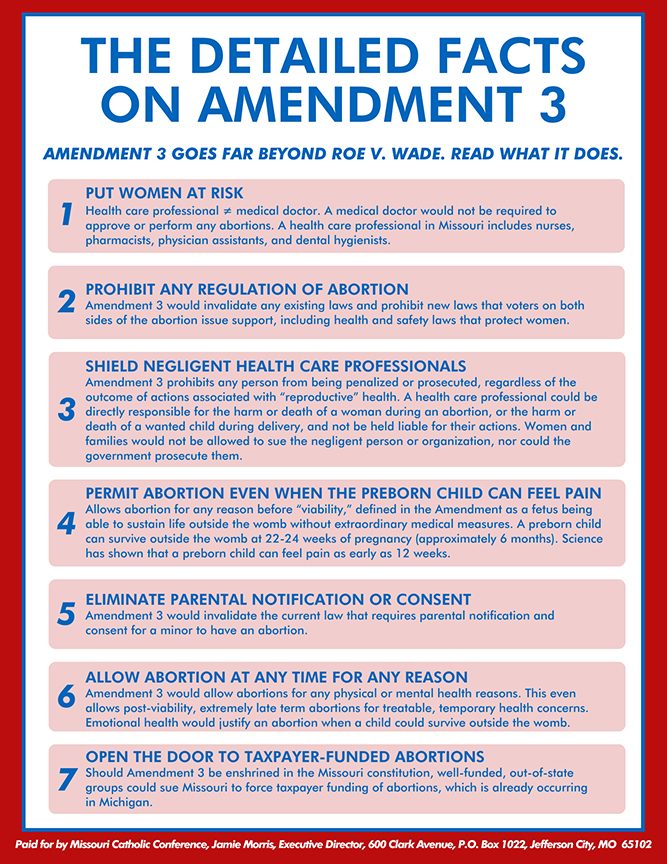
The Missouri Supreme Court has ruled that a proposed constitutional amendment to create a legal right to abortion will appear on the Nov. 5 ballot.
A majority of the seven-member court ruled Sept. 10 that the measure should remain on the ballot.
“Respondent John R. Ashcroft shall certify to local election authorities that Amendment 3 be placed on the November 5, 2024, general election ballot and shall take all steps necessary to ensure that it is on said ballot,” the court stated in its order.
The Supreme Court’s involvement comes on the heels of Cole County Circuit Judge Christopher Limbaugh’s ruling on Sept. 6 against Amendment 3, following a lawsuit filed by the Thomas More Society.
In his ruling, Limbaugh said that Amendment 3 should be removed from the ballot because Missourians for Constitutional Freedom, the campaign behind the proposed amendment, excluded from the full text which laws would be repealed if voters approved the measure, which is a violation of state law.
Meanwhile, Secretary of State Jay Ashcroft noted in a Sept. 9 court brief that he decertified Amendment 3. “On further review in light of the circuit court’s judgment, the Secretary believes the amendment is deficient,” he wrote.
In its order, though, the Supreme Court noted that Ashcroft’s move was of “no effect,” since he had certified the petition as sufficient prior to a deadline of 5 p.m. on the 13th Tuesday before the election.
The proposed amendment would allow abortions until viability (typically around 22-24 weeks of pregnancy), with an exception for the “life and physical or mental health” of the mother. The ballot language specifically states that the government may not restrict an abortion “that in the good faith of a treating health care professional is needed to protect the life or physical or mental health of the pregnant person.”
The Thomas More Society lawsuit, filed on behalf of Missouri Sen. Mary Elizabeth Coleman, pro-life advocate Kathy Forck, Missouri Rep. Hannah Kelly and Our Lady’s Inn President and CEO Peggy Forrest, noted that as proposed, Amendment 3 includes a “super-right” to “reproductive freedom” and would repeal essentially all of Missouri’s laws and constitutional provisions regulating reproductive care and technologies.
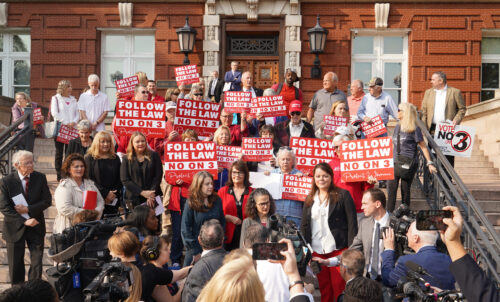
Mary Catherine Martin, senior counsel for the Thomas More Society, addressed reporters outside the Missouri Supreme Court Building in Jefferson City, Missouri on Sept. 10. The Thomas More Society filed a lawsuit seeking to remove Amendment 3 from the ballot in November.
That includes existing laws on abortion, cloning, IVF for stem-cell research, gender transition surgery and genital mutilation, according to the Thomas More Society. It also would include a constitutional provision banning human cloning and IVF for the purposes of stem-cell research, the “Right to Life of the Unborn Child Act,” the “Infant’s Protection Act” — the state’s partial-birth abortion law — along with state laws that protect unborn children at viability and from abortion based on discrimination (including race, sex and Down syndrome), as well as the state’s ban on the abortion of late-term pain-capable unborn children.
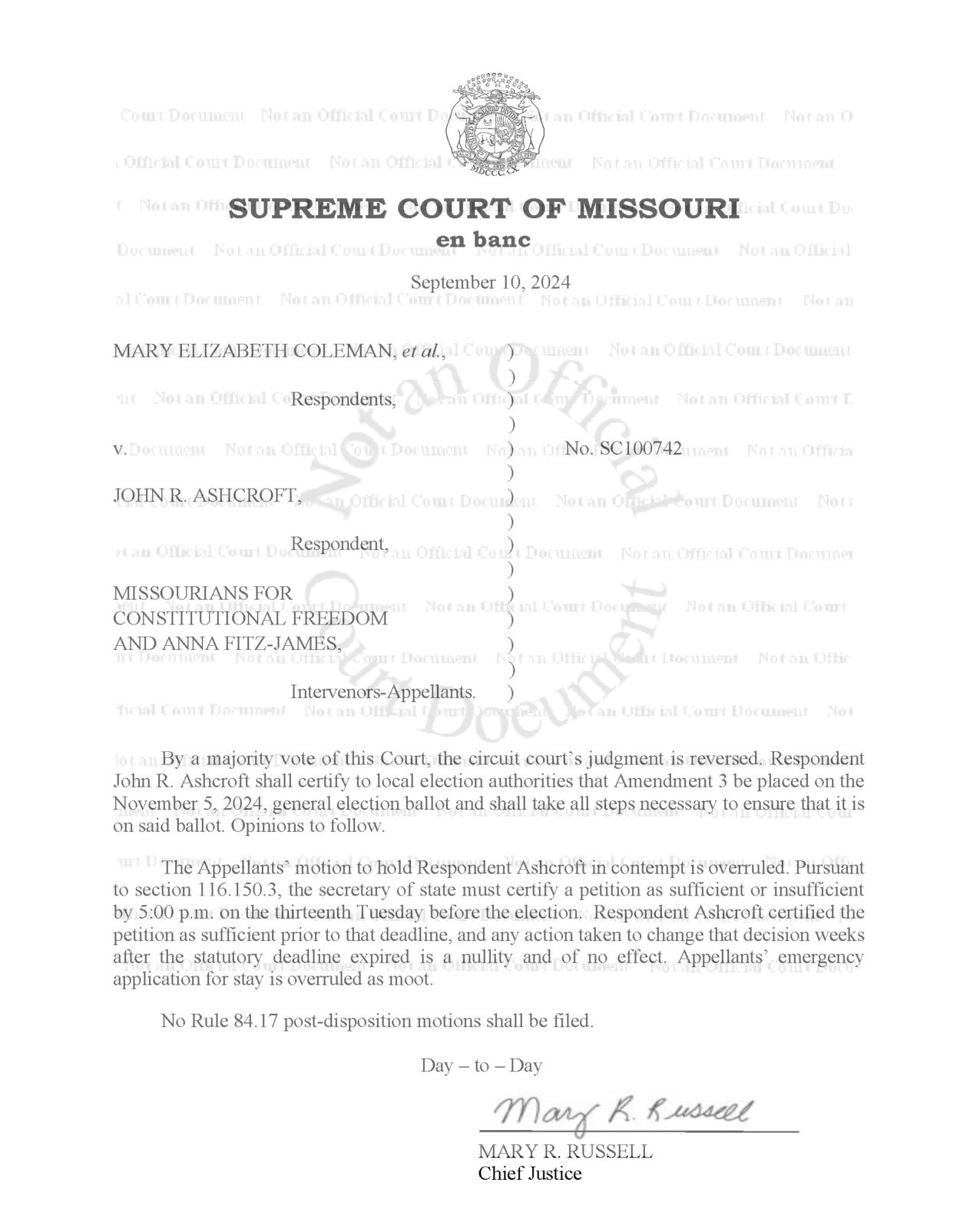
Amendment 3 also would repeal, directly or by implication, parental consent and notification laws regarding abortion and the state’s recent ban on gender transition surgeries on minors, according to the Thomas More Society.
“Amendment 3 is designed to commit Missourians to allowing and funding an enormous range of decisions, even by children, far beyond just abortion,” Thomas More Society senior counsel Mary Catherine Martin said. “The court’s favorable decision relies on only the most glaring decision among a range of consequences hidden by the drafters of Amendment 3. We are confident the reviewing court will also hold that Missouri voters have a right to know what they are voting on, and to vote on one matter at a time.”
In his ruling, Limbaugh did not order the measure to be removed from the ballot, but instead said he’d wait for another court to review the case by the statutory deadline of Sept. 10. State law says that the ballot must be finalized by no less than eight weeks before an election.
Deacon Sam Lee, president of Missouri Stands with Women, the campaign opposing Amendment 3, noted that while the court’s decision was not unanimous, “we’re disappointed in the outcome. We will do everything we can to defeat Amendment 3 because it will harm unborn children, their mothers, families and all Missourians. We will join with all people of faith in educating voters on how dangerous this amendment is and do everything we can to defeat it on Nov. 5.”
Thomas More Society senior counsel Martin said the court’s decision is a “failure to protect voters, by not upholding state laws that ensure voters are fully informed going into the ballot box.”
“Missouri’s Amendment 3 will have far-reaching implications on the state’s abortion laws and well beyond, repealing dozens of laws that protect the unborn, pregnant women, parents and children — a reality that the initiative campaign intentionally hid from voters,” Martin said. “We implore Missourians to research and study the text and effects of Amendment 3 before going to the voting booth.”
“Missourians should have the right to know what laws will be overturned when they are asked to sign an initiative petition,” the Missouri Catholic Conference said in a statement. “The Missouri Catholic Conference will continue to educate the public on the dangers this amendment poses to women’s health by removing even basic safeguards currently in law. We encourage the faithful to continue to pray for a conversion of hearts and minds so that the pro-abortion Amendment 3 is defeated.”
Thomas More Society lawsuit argues amendment would essentially repeal all of Missouri’s laws, constitutional provisions on reproductive care
Subscribe to Read All St. Louis Review Stories
All readers receive 5 stories to read free per month. After that, readers will need to be logged in.
If you are currently receive the St. Louis Review at your home or office, please send your name and address (and subscriber id if you know it) to subscriptions@stlouisreview.com to get your login information.
If you are not currently a subscriber to the St. Louis Review, please contact subscriptions@stlouisreview.com for information on how to subscribe.

